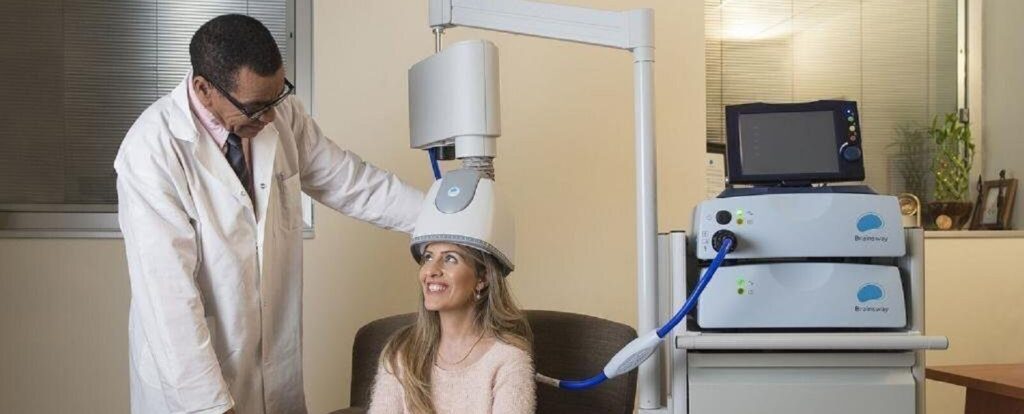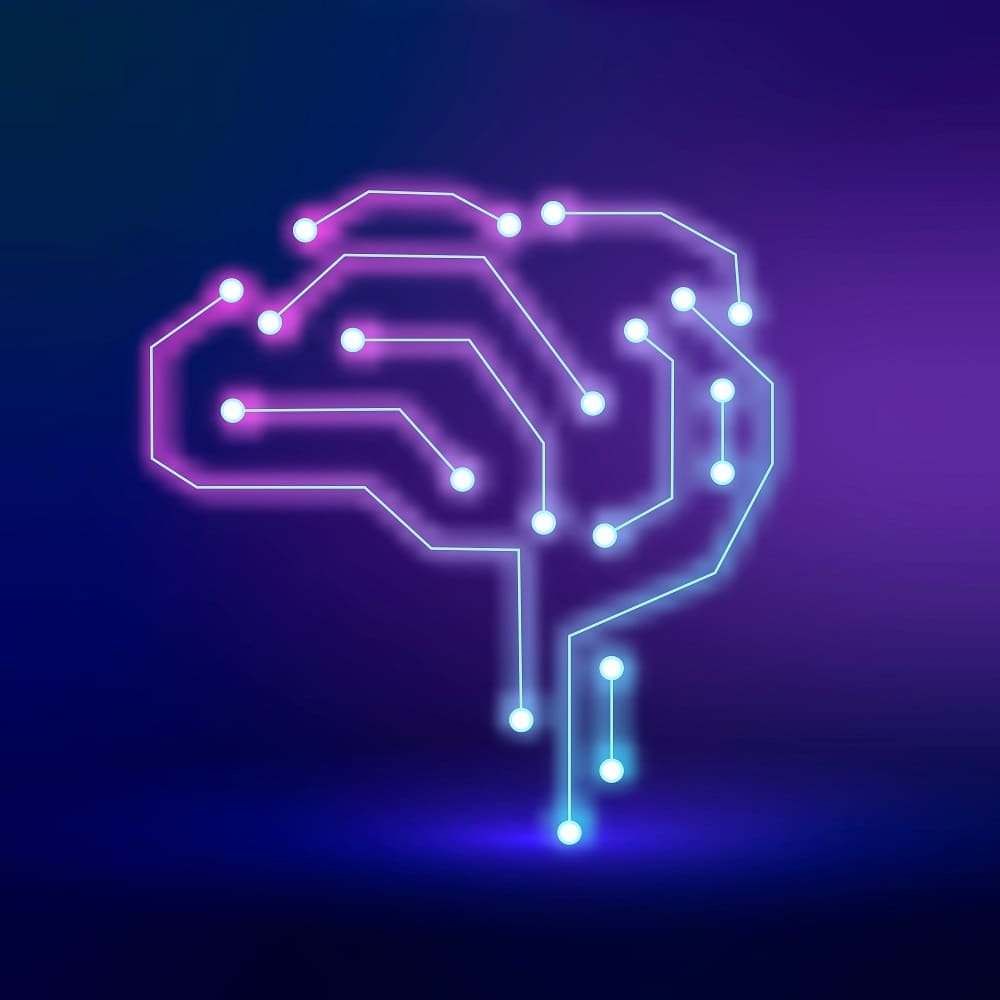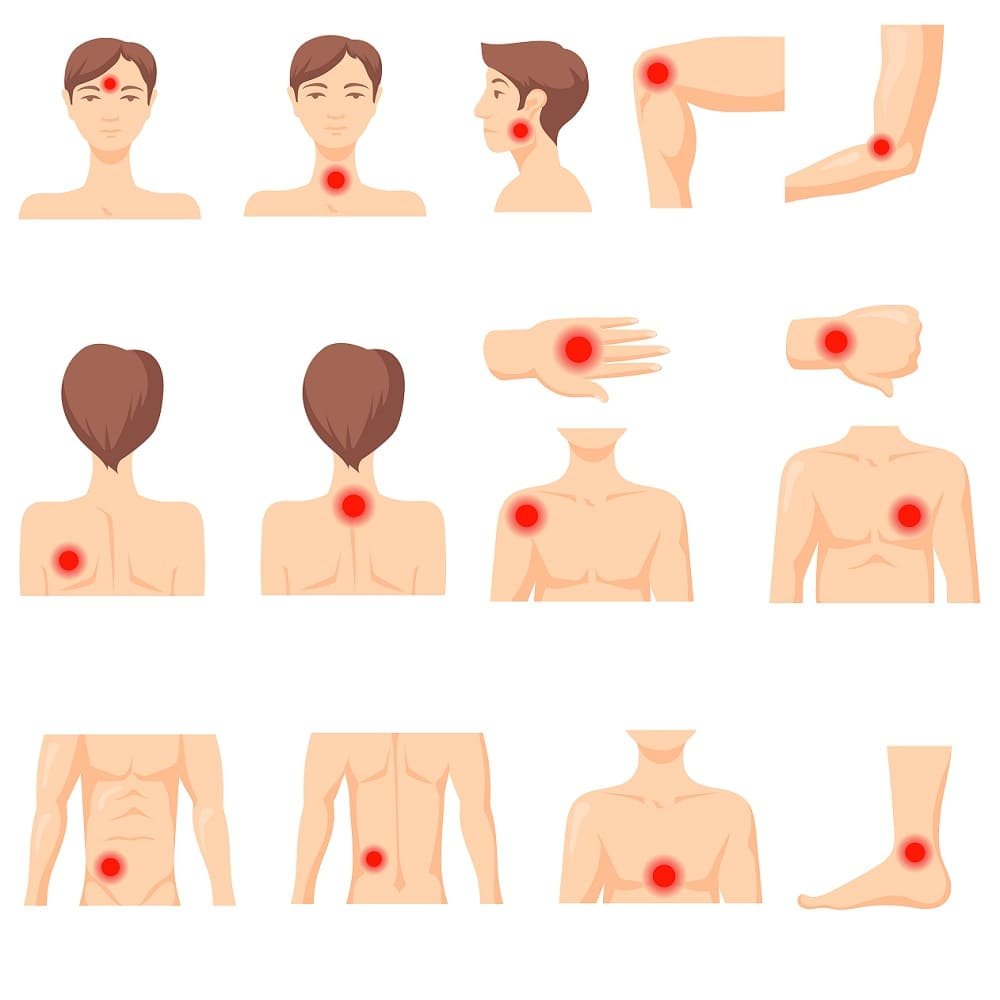Best TMS Treatment Hospital In Mumbai
The Jaslok Hospital & Research Centre is one of the oldest tertiary care, multi-specialty Trust hospitals in the country. This year is the 50th year of its existence. Jaslok Hospital has been the pioneer in the field of neuromodulation and bringing innovative technologies and techniques to the country. In its 50th year, it promises to bring a very futuristic program which is the first of its kind in the country. With a team of more than 20 years of experience in the various fields and the latest equipment, Jaslok Hospital becomes the best TMS treatment hospital in Mumbai.
Overview of TMS Therapy
Electromagnetic stimulation delivered to the brain through specific devices in pre configured pattern can aid in restoring several functions. TMS is an outpatient treatment and requires a treatment time of 25 to 30 minutes per session. TMS has been researched around the world since about the 1980s. So far, an abundance of literature on TMS has been published in peer-reviewed publications, with positive results and minor side effects. The number of TMS sessions depends on the type of disease and will be advised by the physicians looking after that. TMS has been in use for a long period of time and is now an established form of neuromodulation to treat many medical disorders
What is TMS?
TMS procedure involves electromagnetic stimulation delivered to the brain through specific devices in pre-configured patterns that can aid in restoring several functions.
Deep TMS is a form of TMS with wider coverage and deeper penetration into the brain. This enables it to be effective in a larger range of diseases as compared to conventional TMS. BrainsWay Deep TMS™ is the most advanced TMS technology available, with several significant advantages over traditional TMS systems.
What is Regenerative Medicine?
Modern medicine primarily focuses on either disease treatment or disease prevention. Most of the diseases are mainly controlled by medical treatment. In contrast to this, regenerative medicine aims to repair the disease state of the body by either replacing tissue or organs that have been damaged by disease or trauma. Several approaches have been used to do this, including tissue engineering, cellular therapy, and the use of medical devices and artificial organs. This is a fast-emerging branch of medicine that is undergoing extensive research. This is a multidisciplinary field which will eventually involve expertise from a large number of experts outside medicine, for example experts in biology, chemistry, engineering, genetics, robotics etc.
Regenerative Medicine is a promising discipline that works to restore the structure and function of damaged tissues and organs. It is also aiming to develop treatments for organs that have been irreparably damaged. This approach aims to discover a means to treat previously incurable injuries and diseases.
TMS Treatment Offered
The department purchased cutting-edge technology and equipment from the internationally renowned and reputable “Brainsway” company. It uses superior H1-7 coil technology instead of traditional coils to give noninvasive deep TMS in a precise manner to achieve the best results. It has FDA and CE clearance for treatment of various neurological and psychiatric conditions. TMS can only provide certain target spots, restricting their use and capabilities. Deep TMS can reach the following target sites; insula, cingulate gyrus, etc.
TMS for Depression in Mumbai
Depression is characterized by persistent low mood, loss of interest in activities and emotional distress. It has a high impact on an individual’s quality of life and work efficiency. Though medical treatment is the first line of the management, there are patients with depression who cannot get desirable effects from the medications. TMS may become the ray of light in that situation. Its effects have been published in many peer-reviewed articles. Jaslok hospital has an experienced team to deliver treatment by TMS for depression.
TMS for OCD in Mumbai
Obsessive compulsive disorder (OCD) is a type of anxiety disorder in which the patient has persistent, unwanted, anxiety-provoking thoughts and repetitive, time-consuming acts to suppress the discomfort. For example, recurrent thinking may result in repetitive behaviors such as constant double-checking or spending a lot of time cleaning. TMS for OCD works by stimulating particular target of the brain and induces neuromodulation through cellular and network plasticity.
TMS for Diabetic Neuropathic in Mumbai
Diabetic Neuropathy is a diabetic complication that leads to nerve damage. Around 50% of the patients with severe diabetes experience this disease. Pain, paresthesia, and late-stage complications such as sleep deprivation, depression, foot ulcers, bleeding, motor function degradation, and even amputation characterize it. A high occurrence of these problems raises the chance of death and significantly impacts the patient’s quality of life. Although antidepressants, anticonvulsants, and opioid agonists can help with painful neuropathy, these medications are frequently ineffective or have serious side effects. TMS has been proven to be effective even in patients who do not get benefit from the medications. Many patients who received dTMS for Diabetic Neuropathic in Mumbai in Jaslok Hospital has felt significant improvements in their symptoms.
TMS for Migraine in Mumbai
Migraine is a distinctive type of episodic throbbing headache. They are usually one-sided and cause nausea/vomiting. Patient may or may not be preceded by initial sensory symptoms such as blurring of vision, flashing of lights, numbness etc. Severe migraine headaches can reduce quality of life and impair daily functionality. A randomized controlled study in Italy concluded that as compared to standard pharmacological treatment alone, add-on high-frequency deep TMS reduced the frequency and intensity of migraine attack. Jaslok Hospital has dedicated staff to provide dTMS for Migraine in Mumbai.
TMS for Mild cognitive impairment in Mumbai
Mild cognitive impairment (MCI) is the condition in which individuals have cognitive deficits and memory impairment without impairments in daily activities. This may progress and turn into dementia. In the early stages of the disease, complex behaviours (such as driving) are compromised, along with short-term memory, and sometimes behavioural problems, such as anger or aggressiveness, may occur. In many areas of the world, dedicated research is ongoing that can help patients to reduce their suffering from disability. Deep TMS for Mild cognitive impairment in Mumbai is such a novel innovative method that has shown promising results in recent studies. It is a painless, non-invasive method that modulates cortical excitability.
TMS for Parkinson’s disease in Mumbai
Parkinson’s disease (PD) is a neurodegenerative pathology that mainly affects the part of the brain that regulates fine-tuning and co-ordination of limb movements. It commonly appears in older age but, however, there is an entity called young onset PD which starts at the age of 40s. PD is manifested by tremors, slowness of movement (bradykinesia), stiffness, lack of expressibility, low voice, small stepped hesitant gait etc. Gait disorder leads to a tendency to fall which further impair quality of life. In addition to movement disorder, it is also associated with psychiatric symptoms like hallucination, emotional lability, and sleep disorders. Medications are the primary treatment of PD but it is limited by adverse effects and decreases effectiveness as disease progresses. Jaslok hospital has been frontier in the management of the PD patient in the country and neuroscience department is equipped with latest technology with the Deep TMS for Parkinson’s disease in Mumbai.
Process of the Best Deep TMS Treatment in Mumbai
Deep TMS is a non-invasive way of Neuromodulation. This is administered via a specially developed coil mounted in a helmet. When a patient arrives, the nurse will take a thorough history and update the doctor. The doctor will thereafter discuss the most suitable protocol with the patient, which will include the duration of each sitting, the frequency of sittings/week and the total no. of sittings. Once all is confirmed, this will be fed to the computer. Following this, necessary evaluation is done to determine the MT (Motor threshold) by imparting stimulation through the helmet. dTMS will be provided to the patient in accordance with the predetermined guidelines.The number of the sessions are different for various pathologies and target areas. Each session will be approximately 30-40 minutes long. Sedation or anesthesia is not required for the procedure to be performed. Patient is not required to keep fasting before the procedure.
dTMS Benefits
Deep TMS is a non-invasive treatment that stimulates nerve cells in the brain with magnetic fields. An electromagnetic coil is positioned against your scalp near your forehead during a dTMS session. The electromagnet sends a magnetic pulse to your brain, stimulating nerve cells.
- It is a non-invasive method and does not require any anesthesia or sedation during the procedure.
- It takes around 20 minutes per session and the patient does not need to admit for the procedure.
- There is no after-effect of the treatment and one can resume his/her work immediately after the procedure.
Best TMS Clinic in Mumbai
Jaslok hospital has a team of experts from various fields including psychiatrist, neurologists, neurosurgeons, neurophysiologists, psychologists, etc. They have clinical experience of more than 20 years so that it can be assured that patients receive best and genuine advise for their condition. In addition, Jaslok hospital has procured state-of-the-art equipment for the TMS to deliver stimulation at deeper targets with more precision.
Why Jaslok Hospital for TMS?
The Jaslok Hospital & Research Centre is one of the oldest tertiary care, multi-specialty Trust hospitals in the country. Jaslok Hospital has research activities ongoing in various fields in collaboration with other institutions in India & abroad. The hospital has a dedicated “Restorative and Regenerative Medicine” department including consultants in various fields with more than 20 years of experience.
The department has procured the state-of-art technology and equipment from internationally reputed and trusted “Brainsway” company. It contains the advanced technology of H1-7 coils instead of conventional coils, that can deliver noninvasive deep TMS in precise manner to get maximum result. It has FDA and CE clearance for treatment of various neurological and psychiatric conditions. The conventional TMS can only deliver specific target sites, limiting their use and capabilities. Deep TMS can reach the following target sites; insula, cingulate gyrus, etc.
Revitalize Your Life with the Best TMS Treatment in Mumbai
At Jaslok Hospital’s “Restorative and Regenerative Medicine” department, a team of seasoned experts stands ready to guide you towards better health. Comprising psychiatrists, neurologists, neurosurgeons, neurophysiologists, and psychologists, each with over two decades of clinical expertise, this diverse team ensures that you receive tailored and expert advice for your unique condition. Their collective knowledge and experience form the cornerstone of our commitment to your well-being.
Discover a non-invasive, outpatient solution for a range of neurological and psychiatric conditions through our dTMS treatment in Mumbai. Extensively researched and proven effective, this treatment offers a path to enhanced quality of life. With sessions taking just 25 to 30 minutes, you can experience the benefits without the need for extended hospital stays. Choose Jaslok Hospital for TMS treatment and commence your journey towards a healthier, more fulfilling life. With state-of-the-art facilities, advanced technology, and an expert team, we’re dedicated to delivering the highest standard of care, ensuring you’re in the best hands for your transformative TMS experience.
TMS Treatment Reviews in Mumbai
Patients have reviewed it as a very effective and smooth procedure. TMS therapy has allowed them to feel better and work better. The procedure is safe, tolerable, and relaxing. Many patients started feeling joy and motivated.




